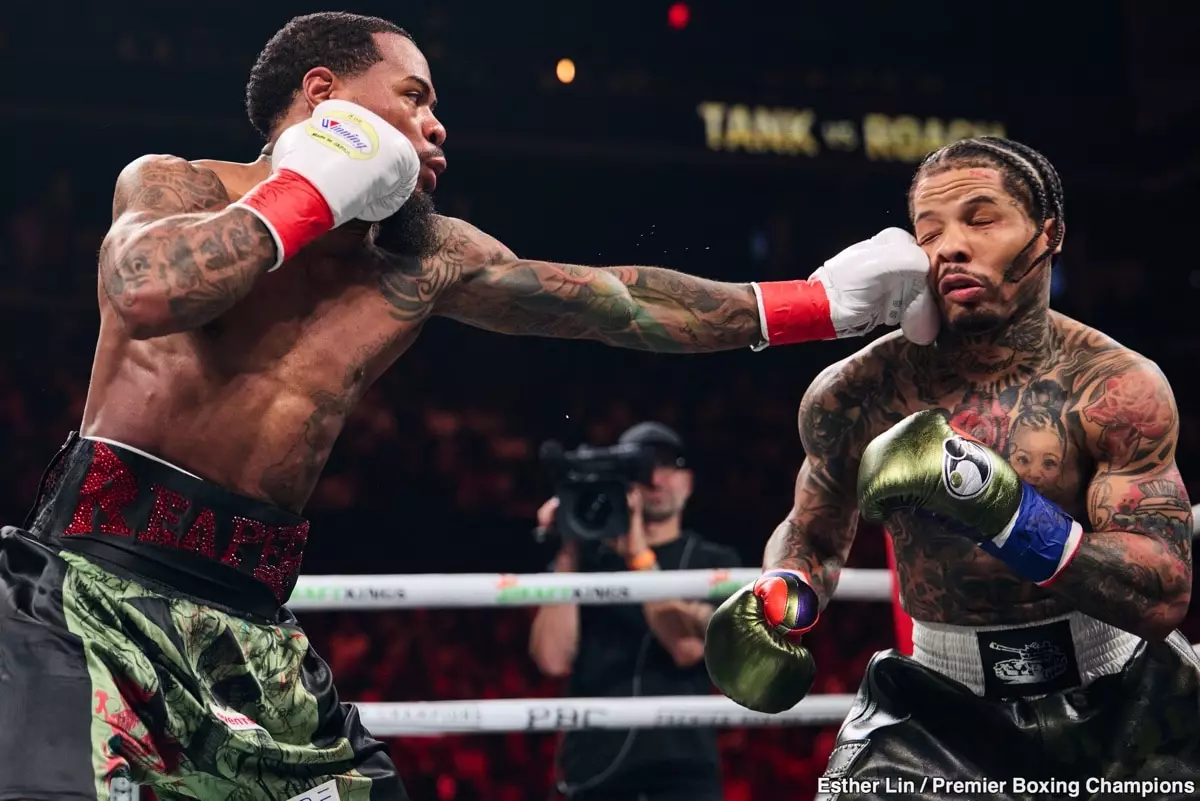In a highly anticipated boxing match, Gervonta “Tank” Davis faced off against Lamont Roach, but the fight took an unexpected and controversial turn that has left fans and analysts grappling with the implications. The ninth round introduced a moment that should have been straightforward based on established rules of boxing—a knockdown resulting from a fighter taking a knee. Instead, referee Steve Wills failed to issue a count, leading to a decision that many believe undermines the integrity of the sport.
On the night of the bout, Davis went down to one knee, a move he later explained was due to grease entering his eye, obstructing his vision. Conventionally, taking a knee constitutes a desperate measure, a tactical pause that places the fighter in a vulnerable position. According to boxing regulations, such an action typically triggers a knockdown call, which would hold significant weight in the overall scoring of the fight. Instead, Davis emerged with a split decision likely viewed as favorable, achieving a draw with scores of 115-113, 114-114, and 114-114.
The implications of this failure to count the knee extend beyond the immediate scoring. Opinions from within the boxing community, including notable figures like Terence Crawford and Claressa Shields, have underscored the discontent. The perceived miscarriage of justice speaks volumes about the ongoing concerns regarding officiating standards in boxing. The anger not only targets Wills but reflects broader skepticism about how boxing rules are enforced, potentially favoring certain fighters over others.
As fallout from the match ensues, the call for a rematch is gaining traction, fueled by the sentiment that Roach deserved a more favorable outcome. The broader implications of such controversies can ripple throughout the sport—spectators might begin to question the consistency and fairness of officiating in boxing. The glaring discrepancy in this situation displays a concerning gap in accountability for referees, particularly in high-stakes fights where the stakes are not just championship titles but also the fighters’ reputations.
This incident is further complicated by social media reactions from other fighters and analysts, almost unanimously declaring Roach the rightful victor. From discussions of potential biases in officiating to the need for systemic reform in how boxing sanctions are handled, the dialogue continues to evolve. Comments ranging from disbelief to outright accusations of unfairness indicate a critical viewpoint that could drive future changes.
The Way Forward
Ultimately, this controversy illuminates a pressing issue within boxing—how decisions made in the ring can leave lasting scars on a sport celebrated for its competitive nature. For the sake of integrity and the athletes themselves, a full investigation is necessary, not only to remedy this particular case but to ensure that similar dissonances do not occur in the future. The boxing community deserves clarity and fairness, and only through proactive measures can we hope to uphold the spirit of the sport moving forward. The fight between Davis and Roach, while seemingly concluded, may just be the beginning of an essential discourse on accountability in boxing officiating.


Leave a Reply